[mc_name name=’Sen. Ted Cruz (R-TX)’ chamber=’senate’ mcid=’C001098′ ] remains a conservative favorite in 2016. In 2012, the establishment backed his Senate opponent in Texas, then Lt. Governor David Dewhurst. The conservative grassroots backed Cruz and pushed him over the finish line. Cruz has since remained a favorite of the grassroots with a continually antagonist relationship with the Republican establishment.
In 2010, [mc_name name=’Sen. Rand Paul (R-KY)’ chamber=’senate’ mcid=’P000603′ ], before Cruz, was a grassroots favorite. The Republican Establishment backed his rival, Trey Grayson. Paul rallied a coalition of conservative grassroots and Ron Paul acolytes to trounce Grayson and win the Kentucky Senate seat. Since then, Paul has wobbled between maintaining grassroots support and developing establishment support. In 2014, for example, he backed [mc_name name=’Sen. Mitch McConnell (R-KY)’ chamber=’senate’ mcid=’M000355′ ] for re-election and has taken an occasional aggressive position to contrast himself from Cruz.
In the same year [mc_name name=’Sen. Rand Paul (R-KY)’ chamber=’senate’ mcid=’P000603′ ] won, the man who started the major revolt between grassroots activists and party leaders ran. It was the Rubio race that really exposed the divide between the base and the leadership. The leadership backed then Florida Governor Charlie Crist. The grassroots, led by former Senator Jim DeMint of South Carolina, allied with [mc_name name=’Sen. Marco Rubio (R-FL)’ chamber=’senate’ mcid=’R000595′ ]. Activists began urging a boycott of the National Republican Senatorial Committee, the Washington group that helps the GOP take the Senate.
Rubio, over 2009, rose in the polls from three percent to victory. Crist was forced to flee the GOP to the Democratic Party where he has been beclowning himself ever since. Once in Washington, Rubio remained a favorite of the grassroots until he tried to cut a deal with the Democrats on immigration. To his credit, he went on Rush Limbaugh’s program to defend it. He made aggressive outreach to conservatives behind the scenes. But it hurt him and the deal died.
Since then, Rubio has been very quiet. Behind the scenes, he has voted quite often with Senators Cruz and [mc_name name=’Sen. Mike Lee (R-UT)’ chamber=’senate’ mcid=’L000577′ ] of Utah. He has been a voice for fiscal sanity, small government, and strong foreign policy. He is also one of the kindest men approachable in Washington. He would rather talk football than politics. He would rather be with his wife and kids than at a fundraising event or Washington social party.
Today, Rubio will declare his candidacy for the Presidency of the United States. Cruz and Paul have gotten the attention so far. All three of these conservative senators, the grassroots revolutionaries, are announcing ahead of the smorgasbord of governors and other would be Republican contenders. Rubio’s path to the stage in Miami today explains why he might be better positioned than Cruz or Paul to make some headway.
Cruz remains the conservative grassroots’ darling. They see him as the purest conservative candidate and he probably is. If Cruz starts making deals to garner establishment support, however, he potentially sees his base collapse with a sense of betrayal. Cruz thinks he has the base firmly on his side. That is usually the moment the ground begins to soften.
Paul has ceded the conservative grassroots to Cruz and has set about reorganizing his father’s coalition. Many conservative grassroots, though they sympathize with Paul on fiscal and civil libertarian issues, murmur in aggravated tones that Paul backed McConnell in 2014 and did not back [mc_name name=’Sen. Ted Cruz (R-TX)’ chamber=’senate’ mcid=’C001098′ ]’s efforts to defund Obamacare in 2013. Instead, Paul used that to try to contrast himself as an adult in the room versus Cruz and the grassroots. Then there are his national security issues, which give a lot of the right heartburn.
Rubio, however, is the original tea party candidate. His candidacy united the grassroots against the leadership and he won. The Washington crowd convinced themselves he could not win, but the grassroots proved they could pick a winner. Rubio was the first.
While Cruz and Paul began forging coalitions, Rubio worked to not undermine his relations with the grassroots while not antagonizing the establishment. His immigration compromise hurt him, but he seeks the nomination in an party that nominated both [mc_name name=’Sen. John McCain (R-AZ)’ chamber=’senate’ mcid=’M000303′ ] and Mitt Romney, two men to the left of Rubio on immigration.
Today in Miami, [mc_name name=’Sen. Marco Rubio (R-FL)’ chamber=’senate’ mcid=’R000595′ ] will declare his candidacy for the Presidency and of the three conservative Senators to run, he is most likely the Goldilocks of the bunch. He is not too tied to the grassroots to antagonize the establishment. He is not too tied to the civil libertarians to antagonize the conservatives. And he has not gone out of his way to reject the base of grassroots supporters who got him elected in order to curry favor with the leadership. He strikes the right balance. He has also been so sufficiently off the radar, by design, for so long that many donors and primary voters will want to listen again to the man who united the right to beat Charlie Crist and the establishment in 2010.
They may like what they hear.


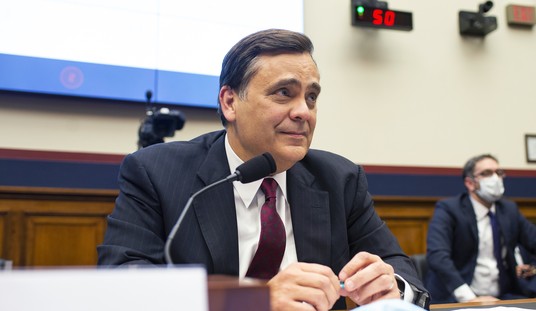

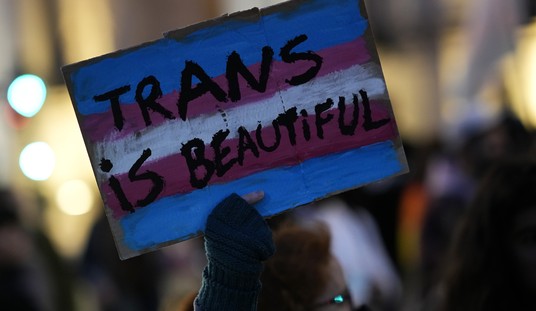
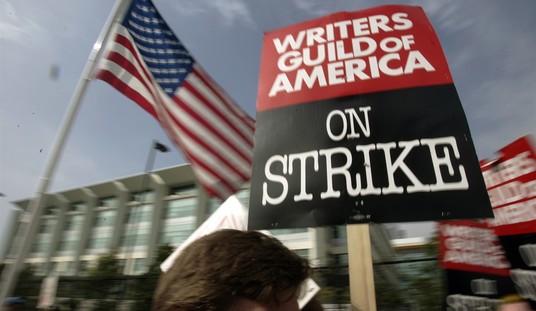



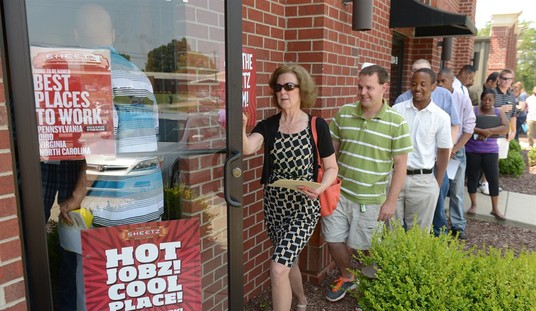
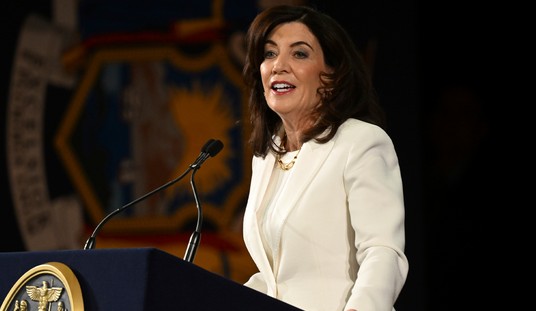


Join the conversation as a VIP Member